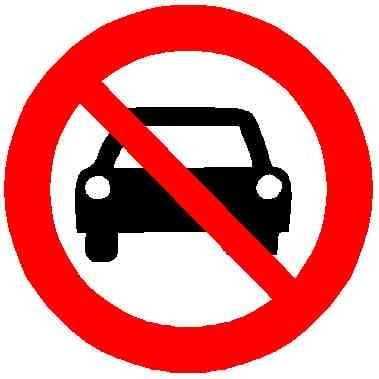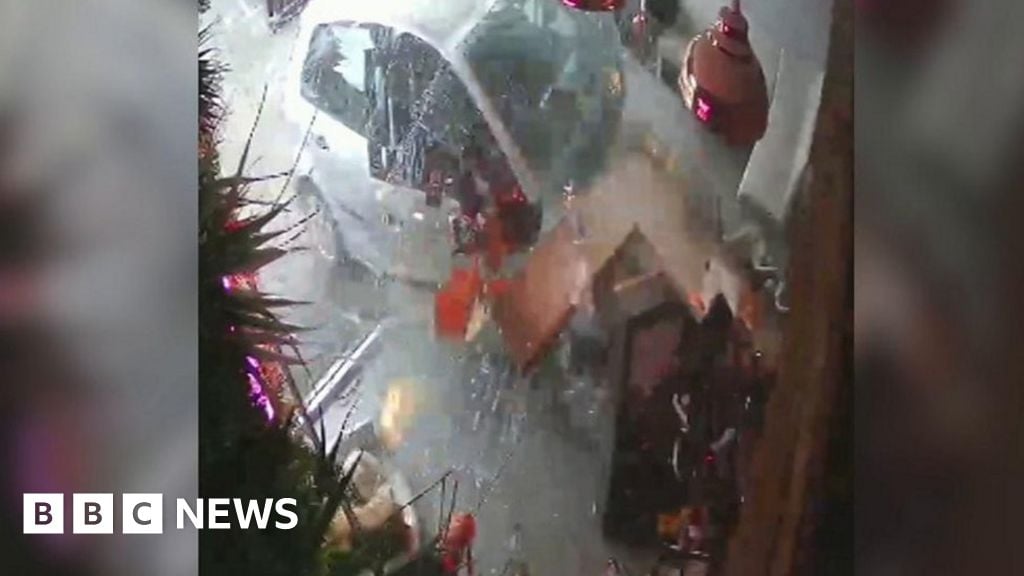Hate how the BBC always use passive voice for car crashes. No mention that a driver is at fault.
News outlets like the BBC try (in my experience most of the time, but not always) to avoid implying something without some evidence or source. The driver was probably at fault, but it could have been a mechanical failure, a panicky swerve to avoid a dog running into the road, etc. Without knowing more they report passively, which I feel is appropriate.
it could have been a mechanical failure
So the owner (who is probably the driver)'s fault.
a panicky swerve to avoid a dog running into the road, etc.
So the driver’s fault.
Without knowing more they report passively, which I feel is appropriate.
But yes, this remains correct even if the driver is at fault, someone must assign that fault, and that’s not BBC’s job. Could passive voice the driver in there too though.
On the note of mechanical faults, it is odd that cars are typically safetied when sold/transfered to a new owner and never really required to be inspected again. Regular safety inspections should be a mandatory part of car ownership.
We had them when I was a kid in Virginia. My shitty Corolla failed because the driver-side door handle didn’t work on the inside.
They wanted $150 to fix it, so I just tied a rope to the mechanism inside the door. It passed.
All-told, it’s a great idea and also provides some business for local mechanics.
Mandatory periodic (typically annual/biannual) safety inspections are fairly common: https://en.wikipedia.org/wiki/Vehicle_inspection
It is in the UK. You have to get an annual MOT check, I believe. I’ve also found it odd that that isn’t required where I am either, though.
🤓
oh hey everyone! Look at the beautifully crafted reply. Isn’t that just great how this person adds to the conversation in a meaningful way?
100% agree that it’s horrible wording, but the linguistics nerd inside my brain just has to say: that’s not the passive voice.
Passive voice would be something like “a store was smashed into” or “a car was driven into the store”, where the grammatical subject is the semantic object. It can be used to avoid saying the subject of the sentence, who’s doing the action, but in this case they keep the active voice and just change the subject from a “driver” to a “car”.
On another note, it’s also telling that the article first comments on financial damage, then that the driver is unhurt and the car is damaged, and only after that does it say that the store-owner and the two customers were unharmed.
At least they didn’t use the victim-blaming language news outlets often use for pedestrians and cyclists: “Tanning shop struck in accident wasn’t wearing a helmet”. No mention of the driver, the car, who had the right of way, who was speeding, etc.
Kinda new to this sub but if you want the “fuck cars” perspective on this; when cars were first introduced to the US there was actually a moment of national consideration on the safety of speeding motor vehicles suddenly infesting our towns and cities and the associated injuries (some 94% initial increase in child fatalities, for example). Many people preferred improvements in public transport at the time and in fact there was a proposal in Cincinnati to require by law that cars be fitted with a device that would limit their speed to just 25 mph (this proposal would soon be stamped out by a well-funded “vote no” campaign). If cars themselves were to blame, then regulators would go after cars and those responsible for their creation, i.e. the auto industry.
The auto industry responded to pushback like this by banding together to manufacture consent for their products, thus creating a massive propaganda campaign that blamed individual reckless drivers and pedestrians (inventing the term, “jaywalking”. Streets used to be for people AND vehicles, so this was a massive culture shift. “Jay” being akin to the term “hick” at the time.) for the uptick in road deaths that, of course, wouldn’t exist if not for the phenomena of cars itself. This allowed them to then use road fatalities to argue in favor of increased accommodations for vehicles in cities.
Source: Slow Cities, Introduction: changing cultures of speed, Tranter & Tolley (highly recommend, it’s available to read for free here as part of the PMC COVID-19 Collection for some reason lol: ncbi.nlm.nih.gov/pmc/articles/PMC7325856/ )
Anyways, all in all, I’m not really sure how this fits here. Although a bit philosophical (read: Virilio, the original accident, “to invent the [car] is to invent the [car] accident”), the car itself is in fact partially to blame. There’s not many other ways for the common person to accidentally destroy buildings like that. If there was no car, or at least that person was not compelled to own it, that wall would still be intact.



